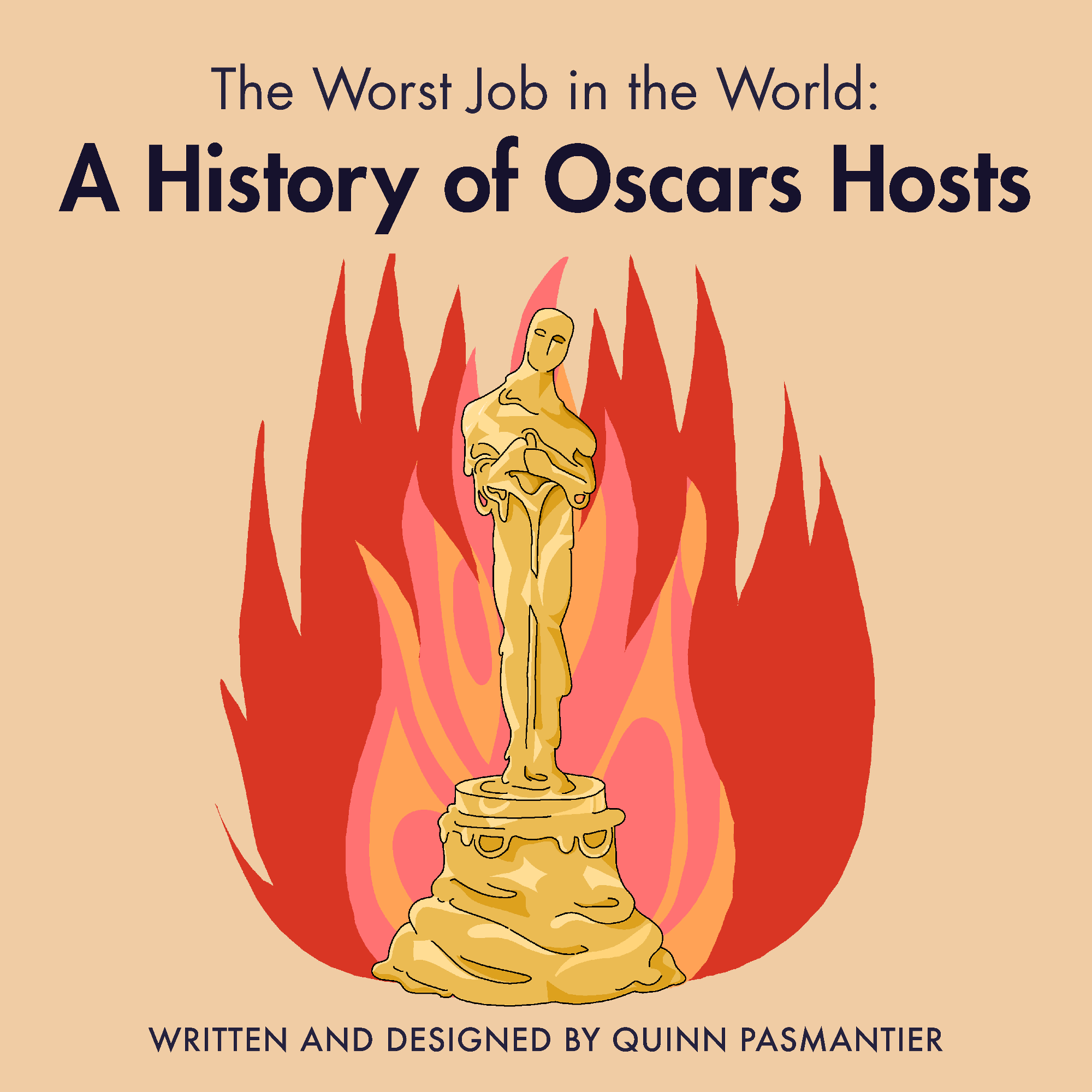
Since its inception in 1929, the Academy Awards Ceremony (also known as the Oscars), has always been a prestigious event. Even before it became a televised ceremony in 1953, the public always paid close attention to the papers and broadcasts, hoping to hear their favorite actor or director receive an award. Though the event remains well-respected, the Oscars have lost some of the formality they were previously associated with. A prime example: the concept of the host.
While in the past it was usually the Academy President who took on the job, these days it is more common to have a comedian or late-night personality up on stage. This precedent was started in 1940 by Bob Hope, a popular British-American comedian known for his rapid-fire one-liners. Before starting his presentation, he famously glanced at a table covered in ungiven awards, commenting, “I feel like I’m in Bette Davis’ living room.” Quips like these helped endear the public to the event, making it feel less stiff and formal. Following the success of his performance, Hope was invited back 18 more times — a record that stands unbroken to this day. Other comedians and actors (Conrad Nagel, Jack Benny and Paul Douglas, to name a few) would go on to host the show in later years, further leaning into the idea that the Oscars are more entertainment than event.
For many decades, it was considered a great honor to host the ceremony. These days, however, it’s thought of more as a risk. Even when nothing goes wrong, it’s easy to catch flak as an Oscars host. A prime example of this is the 2011 Oscars, hosted by James Franco and Anne Hathaway. Even though no mistakes were made, their robotic performances were ridiculed for months by journalists, with some calling it “uncomfortable” and others “lazy and embarrassing.” Hathaway has since commented on the event, poking fun at what she called a “no-win” situation.
“[Franco] didn’t give me anything,” she told People Magazine in a 2022 interview. “Even the people who do it spectacularly well — like Hugh Jackman, Jimmy Kimmel, Ellen DeGeneres — usually just get a ‘meh’ from everyone. It’s a really hard gig to stick the landing on.”
To some, however, even Franco and Hathaway’s experience could be considered a best-case scenario. In the 2013 Oscars, Seth MacFarlane opened his monologue by performing an Old Hollywood-style chorus number, making fun of actresses who have appeared topless in movies. While the number was part of a larger skit and not meant to be taken seriously, some argued that it was a little out-of-touch and tasteless for the modern era. In a review of the event, CNN entertainment author Lisa France commented that MacFarlane’s style was “Funny. Sexist. Sassy. Awkward.”
All of us can remember (with a somewhat tired awkwardness) the 2022 Oscars slap. Chris Rock, during his presentation of Best Documentary Feature, made a joke about Jada Pinkett Smith’s shaved head — causing Will Smith, her former husband, to stand up from his seat and slap him in anger. While Rock was not that year’s host, the shocking event still reflected badly on the three co-hosts’ records. Even when you prepare, things can still go wrong.
So what can be done? It’s a well-known fact that being an Oscars host in the modern era is dangerous. Would it be easier with no host at all? This question was answered in 2019 when planned host Kevin Hart abdicated the position following a resurfacing of anti-LGBTQ+ tweets. The Academy producers, unable to find a replacement, allowed the event to go hostless. Reviews of the ceremony were surprisingly positive, with magazines such as Entertainment Weekly reporting that it ran with “a rare efficiency.” The following year, due to the pandemic, the 2020 Oscars also had no host. The trend continued in 2021, and many wondered if this signaled a permanent change in the way the event would be held. However, in 2022 (the year of the slap, as previously discussed) the Academy hired three hosts and promoted the event as a “return to normalcy” — which clearly did not go smoothly. Jimmy Kimmel, famous late-night talk show host, took on the job for the 2023 Oscars, giving what The New Yorker called a “pallid and watered-down” performance.
Kimmel is scheduled to host again at the 2024 Oscars March 10, and while it’s impossible to tell how the event will go before it happens, The Hollywood Reporter calls the decision “hardly surprising” and expects it to go well, given Kimmel’s decades of experience hosting on television. The question of whether or not the Oscars truly needs a host is still unanswered, but one thing remains certain: it really seems to be the worst job in the world.